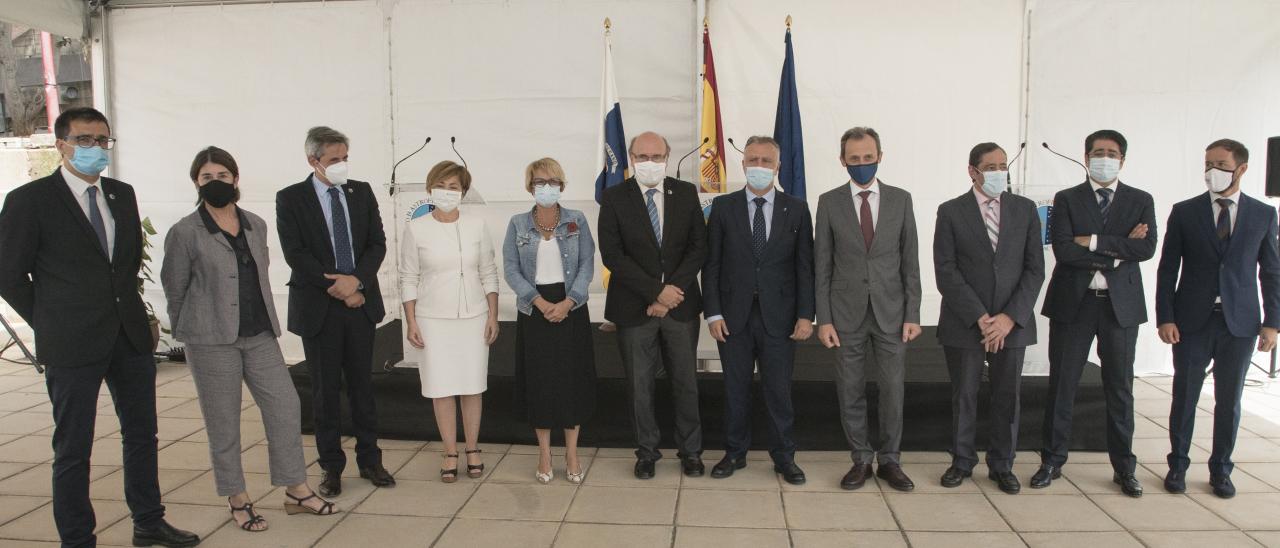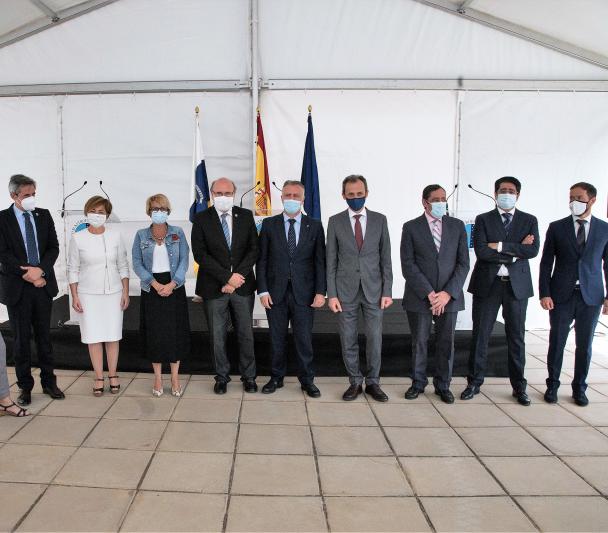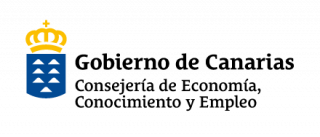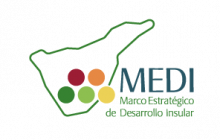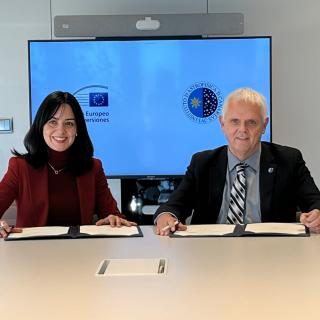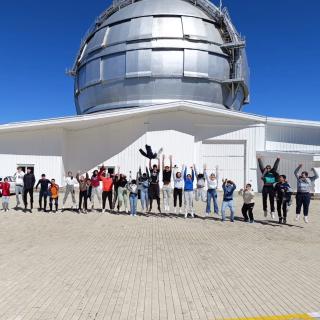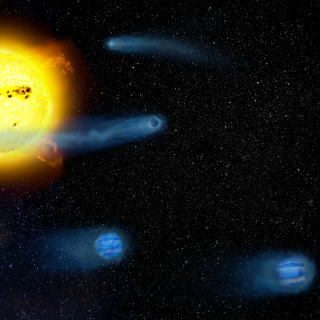The Minister of Science and Innovation this morning presided over the annual meeting of the Governing Council of the Instituto de Astrofísica de Canarias (IAC) after the “official opening” of the installations of IACTEC in La Laguna, which are fully operational from today. In a press conference he stressed the programmes which will be carried out in the Area of Cooperation Business-Technology, among them the new Centre of Advanced Optical Systems (CSOA). He also reported on the current state of the negotiations regarding the Thirty Meter Telescope (TMT), of greatest international interest for the Roque de los Muchachos Observatory, and of the recent provisional resolution which qualifies the IAC with the Severo Ochoa seal of excellence for the third time.
As well as the Minister, among those attending the meeting were Ángel Víctor Torres, the President of the Government of the Canaries; Rafael Rodrigo, (National) Secretary General of Research; Elena Máñez, (Canary) Councillor of Economics, Knowledge and Employment; Rosa Mª Aguilar, Rector of the University of La Laguna; Jesús Eugenio Marco de Lucas, Vicepresident of Scientific and Technical Research of the CSIC, representing the president of the CSIC (by videoconference); Pedro Manuel Martín, President of the Cabildo Insular of Tenerife; Mariano Hernández Zapata, President of the Cabildo Insular of La Palma, and Carlos Navarro Martínez, director of the ACIISI. The IAC was represented by Rafael Rebolo, the Director, Casiana Muñoz Tuñón, the Deputy Director, and Jesús Burgos, the administrator, who presented reports on the economical and fiscal situation, on the personnel of the Institute, and on agreements and pacts which have been signed.
“In the session of the Governing Council of the IAC -explained the Minister- we have noted the major achievements of the centre, and also celebrated the achievement yesterday of the qualification as Severo Ochoa Centre of the National Research Agency”. He emphasized: “Only with knowledge and innovation will we emerge from this crisis with resilience, so that the next crisis finds us much better prepared with people working, here in the Canaries, and in other parts of Spain, in jobs with greater value, and better pay. Innovation is the only way to have a sustainable social system in which we can offer our children a better future than our own”.
Elena Máñez, who in the press conference acted as representative of the Canary Government because the President had had to leave, said that it is very important for the Canaries and for the Instituto “to feel this support from the Government of Spain, and the commitment of the Minister, here personally”. And she added her congratulations for the recognition of the IAC for the third consecutive four year period, as a Severo Ochoa Centre of Excellence, “this shows the high level which can be found in the Canaries, and the importance of knowledge in these times, which is vital in the context of the present crisis and the difficulties through which we are passing. Knowledge is not only intrinsically valuable, but it brings an economic return, and social revaluation”.
“One example -noted the Councillor- is IACTEC and the presence of technological companies who are generating employmnent and economy and, of course, the present and the future. With the support of the different administrations -the Cabildo of Tenerife, the Cabildo of La Palma, and the Government of the Canaries-, we will contribute in the context of the current crisis to produce that added value and that sustainable outcome, with a fundamental pillar, which is knowledge”.
Rebolo thanked the commitment of the members of the Governing Council of the Institute. “The IAC -he said- is a research centre in which we carry out the best research that we can, and in which we try to train young people in Cience and Technology, and where we also transfer technology. The new IACTEC centre, in the La Laguna Science and Technology Park of the Cabildo of Tenerife, is our opportunity to make an approach to diversification and, of course, the Institute is more than willing for all its “know how”, all the technological knowldege which it acquires, is transferrred to society. You may, therefore, count on our full compromise in this direction”.
The situation of the TMT
Pedro Duque reported the decision of the Thirty Metre Telescope (TMT) Consortium to wait until a least the spring of 2021 before making its next decision. “I would personally like to recognize that there has been a major effort, and above all, an impressive coordination of institutions with the result that the TMT has been possible in the Canaries, and is still a possibility for the Canaries. At a technical level we cannot do more. We have done everything needed. It has been shown in several terms that the Canary site is equally valid and worthy to the Hawaiian site, to satisfy the technical needs. The Government of the United States was not in the project, it was scientific institutions, and now they are wating the resolution of the US Government to see if it wants to enter the project with State funding. And that will have to wait”.
“They are not even able to discuss a possible Spanish technological contribution -warned Rebolo- because in the project they designed, initially, this was not contemplated. And if the United States Government becomes the majority partner in this project the Consortium will have to follow its guidelines and, with this majority vote, the future of the Consortium will have to be reorganized. We in Spain are prepared to look for technical solutions we can offer, but we will have to wait until next year and start negotiations on how this can be done, what are possible ways to finance it, and so on”.
Máñez repeated in the name of all the administrations in the Canaries “ this firm commitment with respect to the TMT and thatm while there is any possibility, we will fight for it convinced of our capacities and our potential”.
Finally, Pedro Duque comented that, as he had reported to the Governing Council, “after the conversations lasting years with the TMT, the Roque de los Muchachos Observatory has become much more visible to scientists who until now had not thought of it”. And now there exist, as they have communicated, “the possibility of another series of projects which could come to La Palma, and which could be as positive, or even more positive, as the TMT project itself”.
A nursery for technological companies
Before the meeting of the Governing Council in the IAC Headquarters, in La Laguna, the Minister of Science and Innovation visited the building of IACTEC, also in La Laguna. Its 3,700 m2 in the La Laguna Science and Technology Park are initally oriented to the transfer of technology in the following areas: instrumentation for small satellites, teledetection and optical communications; medical technology; advanced optical technology and the future large scientific installations in the Canaries, such as the European Solar Telescope (EST), the New Robotic Telescope (NRT) and the Cherenkov telescopes of the CTA network. Also it will allow cooperation between the public and private sectors, both technologically and as enterprises, whicle contributing to the industrial development and commercializaton of products of high added value in the Canaries.
The Minister and the Secretary General for Research were accompanied in their visit to IACTEC by Pedro Martín, president of the Cabildo; Enrique Arriaga and Raquel Lucía Pérez Brito, the president and the managing director, respectively, of the La Laguna Science and Technology Park, where the IACTEC is sited; Elena Máñez, the Councillor for Economics, Knowledge and Employment of the Canary Government; Rosa Mª Aguilar and Ernesto Pereda de Pablo, Rector and Vice-Rector for Research of the University of La Laguna; Luis Yeray Gutiérrez, the Mayor of La Laguna; Carlos Navarro, the Director of the Canary Agency for Research, Innovation, and the Information Society (ACSIIS); Luis Ordóñez, advisor to the Minister of Science and Innovation; as well as the Director of the IAC, and personnel of IACTEC, who explained the projects to the group.
The IACTEC initiative, in collaboration with the Cabildo Insular of Tenerife and INTech Tenerife, on ground lent by the University of La Laguna, has the mission of developing in the Canaries an innovative ecosystem for the transfer of high technology from the public sector to private companies, taking advantage of the scientific and technological capital of the IAC. The three institutions which have formed it, will collaborate in the development of projects of R+D+I in the fields of Astrophysics, Space, and related technologies, by supporting excellence in research, and by promoting the active transfer to the business sector. The aim of this collaboration is to implant knowledge-base intensive business activity; enhancint the value of the results of R+D+I via nurseries and incubators of companies, and by supporting open innovation with the impulse in national and international networks.
Memoria of 2019 and Budget for 2021
In the meeting of the Governing Council, the Director of the IAC reported the activity of the Institute in 2019, and the future research projects of the IAC. Also the proposed budget of the IAC for 2021 was approved, at a level of 20 million euros, of which 14 million come from the Ministry of Science and Innovation, and 6 million from the Canary
Government. The two administrations commited themselves to seek extraordinary grants which bring the budgets for 2020 and 2021 closer to those foreen in the Multiannual Plan. In addition, the project of a new centre for advanced optical systems which the IAC is proposing to create next year, in the framework of the National Recuperation Plan, was presented. The Council gave positive value, and showed support to this initiative which will allow the creation of a new technological area for the public and private sectors, currently not covered within Spain.
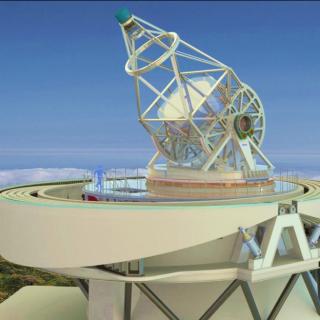
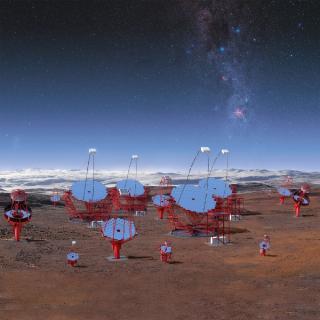
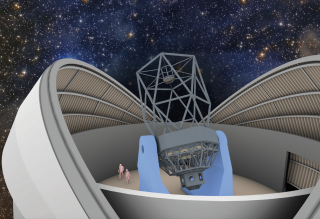
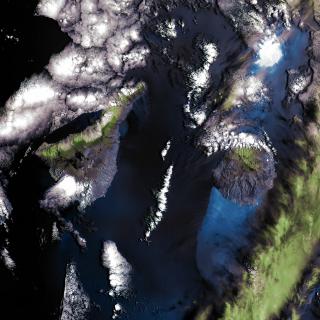
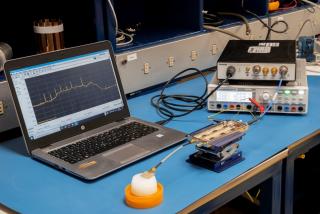
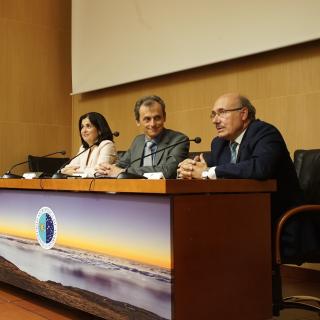
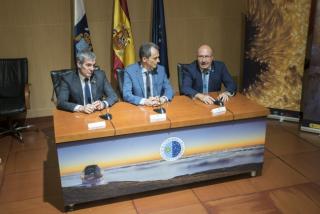
Aula
